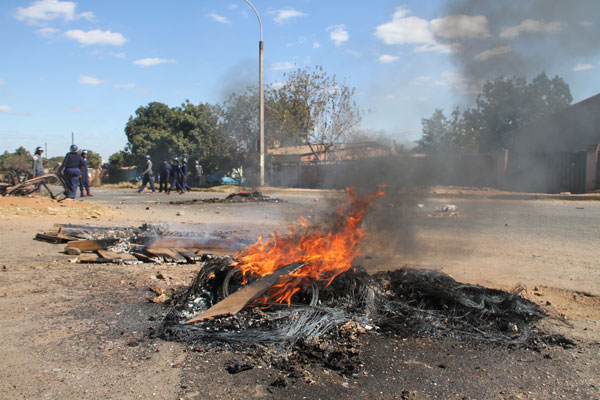
by Arvind Kumar and Gary Cohen
Each year, over 8 million lives are lost prematurely due to outdoor air pollution caused by the burning of fossil fuels. These shocking findings come from a study released recently from Harvard University and University College London.
The study, that looked at lives lost in 2018, suggests that the total number of lives lost due to fossil fuel combustion was 20 times more than that due to malaria and six times the number of lives lost due to road accidents in 2018.
Scientists have documented that air pollution is connected to a broad array of adverse health conditions, such as heart disease, asthma, lung cancer, neurological damage and birth defects.
And while many studies have quantified air pollution’s impact on mortality, few have analysed how many deaths are specifically associated with the burning of fossil fuels.
Harvard’s assessment uses an updated scientific model to quantify these deaths, finding that they are significantly more damaging to health than previously thought.
What’s more, the study finds that thousands of children under the age of 5 die prematurely each year from lower respiratory infections caused by air pollution from fossil fuel combustion.
Children are particularly vulnerable to the health impacts of fossil fuels.
- Chamisa under fire over US$120K donation
- Mavhunga puts DeMbare into Chibuku quarterfinals
- Pension funds bet on Cabora Bassa oilfields
- Councils defy govt fire tender directive
Keep Reading
Their bodies are still developing, and they breathe more air and eat more food than adults compared to their body weight.
Therefore, they are exposed to more pollutants in the air, placing them at higher risk for fatal health outcomes.
Children are our future and letting our future be damaged irreversibly by fossil fuels poses a danger to our very existence.
We are already witnessing the catastrophic impacts of climate change — increased heat waves, extreme rainfall and drought.
This new study solidifies the need for urgent action so that our planet’s health and our own health is not at risk by our continued reliance on fossil fuels.
The good news is that unlike many health crises, deaths from fossil fuel combustion are preventable.
Switching to clean, renewable sources of energy like solar and wind can prevent early death and suffering in the future, and they are on track to be the least expensive energy sources almost everywhere by 2030.
Electricity generation from renewables has already outpaced that from coal in the UK and EU, while in the US coal-fired electricity generation is at a 42-year low.
A core component to accelerating the transition to renewable energy is reversing the direct and indirect subsidies to the fossil fuel industry.
A study by the International Monetary Fund estimated the subsidies to the fossil fuel companies amounted to $5,2 trillion in 2017, the equivalent of 6,5% of global GDP.
The IMF estimates that half of these subsidies are indirect, the externalised harm caused by the industry for which society foots the bill, not the fossil fuel companies.
Health impacts and costs make up the largest share of these indirect subsidies.
To be clear — we are subsiding the very companies that are responsible for millions of deaths each year and are also driving the climate crisis.
Right now, governments are rightly preoccupied with the coronavirus pandemic, getting their people vaccinated against the coronavirus, working out how to ease lockdowns and get things back to normal.
As the global economy is rebuilt, we should not return to a ‘business as usual’ scenario.
Continuing to subsidise polluting industries will lead to more air pollution, more dangerous airborne particulates, more greenhouse gas and more climate change.
The study also highlights the moral bankruptcy of continuing to invest in fossil fuel companies.
Why invest in an industry that is responsible for destroying our health and the Earth’s ability to regulate our climate?
The momentum for divestment in growing.
As of 2020, 1200 investors have divested $14 trillion from fossil fuels, according to DivestInvest, which tracks these developments.
As health care professionals and advocates for climate action, we cannot watch this in silence and it is time for us to make efforts to raise awareness, awaken people and take actions to arrest this existential threat. Integrating health to climate change policies offers a major opportunity to reduce emissions and improve public health.
Health and science professionals are well placed to act as a bridge between policymakers and society, working together to push for more ambitious climate policies on everything from the energy to the land sectors.
Mitigation policies to limit temperature rise to 1.5°C, for example, could prevent 150 million premature deaths over the course of the century.
We can no longer afford to look at ending our use of fossil fuels as only an environmental issue – it’s the greatest global health threat we face.
We need a strong political commitment in place to speed up this transition towards clean, renewable energy and it is imperative that economic recovery plans, as we come out of the pandemic, focus on climate-smart investments that put public health at the core.
The time to act is now — tomorrow may be too late — Thomson Reuters Foundation
- Gary Cohen is the president and co-founder of Health Care Without Harm.
- Kumar is founder and managing trustee at Lung Care Foundation; and chairman, Institute of Chest Surgery, Chest Onco-Surgery & Lung Transplantation and co-chairman, Medanta Robotic Institute, at Medanta Hospital in Gurugram, India.











